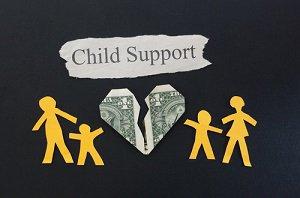Understanding the Illinois Child Support Law
Posted on January 13, 2016 in Child Custody and Support
 If you are a divorced, separated, or unmarried parent, you may be aware that many of the laws regarding child custody and parental visitation have been changed in Illinois beginning this year. To the surprise of some around the state, however, the statutes regarding child support have yet to be updated. This means that the guidelines that have been in place for a number of years will remain in effect for the foreseeable future.
If you are a divorced, separated, or unmarried parent, you may be aware that many of the laws regarding child custody and parental visitation have been changed in Illinois beginning this year. To the surprise of some around the state, however, the statutes regarding child support have yet to be updated. This means that the guidelines that have been in place for a number of years will remain in effect for the foreseeable future.
Who Pays Support?
According to the Illinois Marriage and Dissolution of Marriage Act, either or both parents may be required to contribute toward the financial support of their child. These payments are intended to help provide for the child’s most basic needs, including shelter, food, clothing, and day-to-day needs. In practice, however, if you are a parent who has not been granted the majority of the parenting time with your child, you will likely be ordered to make support payments.
Calculating Your Responsibility
Orders for child support are to be determined by a formula set forth in the law. Based upon the circumstances of your individual situation, however, the court may elect to deviate from the statutory guidelines. In doing so, the court must first use the provisions in the law to calculate the recommended amount, but may alter final order with justifications in the form of specific factual findings. Absent any mitigating factors, if you are the supporting parent, your minimum responsibility will be based on your net income and the number of children to be supported:
- 20 percent of your net income for one child;
- 28 percent for two children;
- 32 percent for three children;
- 40 percent for four children;
- 45 percent for five children; and
- 50 percent for six children or more.
The law also includes a definition of net income. Your net income is all income from all sources minus legally allowable deductions, including but not limited to state and federal taxes, Social Security contributions, mandated retirement contributions, union dues, prior obligations of support or spousal maintenance, and other expenses necessary for the continued production of income.
Other Expenses
In addition to basic child support, the court may also require you to share the cost of other expenses related to your child as well. These may include health-related needs not covered by insurance, childcare or day care, education, and extracurricular activities.
If you have questions about the law regarding child support in Illinois and your potential obligations, contact an experienced Geneva family law attorney. We will review your situation and work with you in seeking a child support order that both meets the needs of both you and your child. Call 630-232-9700 today schedule a confidential consultation at The Law Offices of Douglas B. Warlick & Associates.
Source:
http://www.ilga.gov/legislation/ilcs/ilcs4.asp?DocName=075000050HPt%2E+V&ActID=2086&ChapterID=0&SeqStart=6100000&SeqEnd=8350000







 If you are a divorced, separated, or unmarried parent, you may be aware that many of the laws regarding child custody and parental visitation have been changed in Illinois beginning this year. To the surprise of some around the state, however, the statutes regarding
If you are a divorced, separated, or unmarried parent, you may be aware that many of the laws regarding child custody and parental visitation have been changed in Illinois beginning this year. To the surprise of some around the state, however, the statutes regarding 